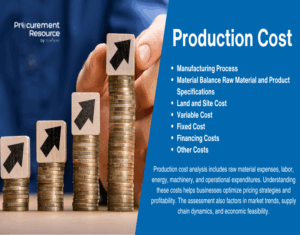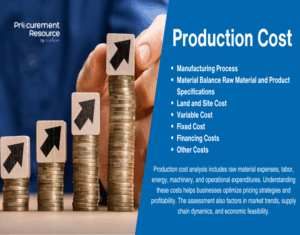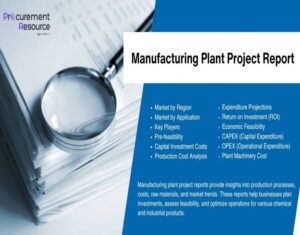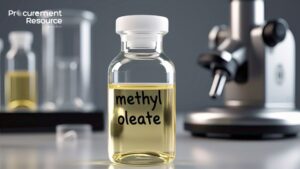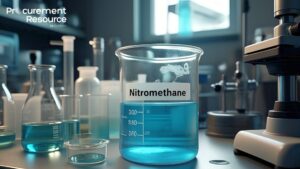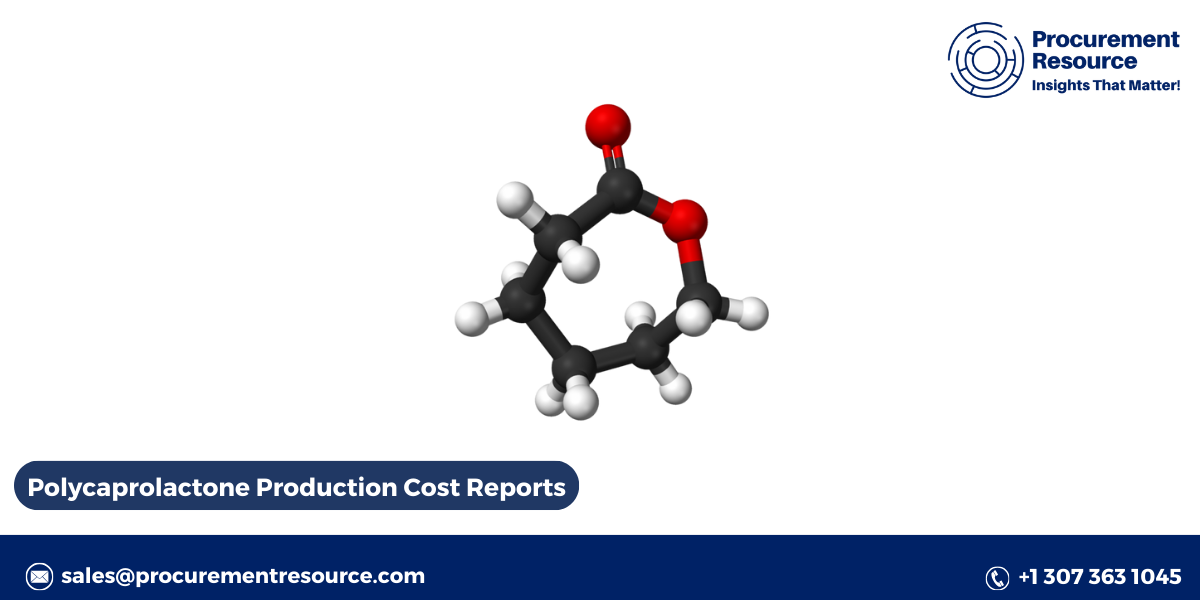
Polycaprolactone (PCL) is a biodegradable polyester with significant applications across various industries, including biomedical, packaging, and 3D printing. Known for its durability, flexibility, and biocompatibility, PCL has gained popularity, especially in medical and pharmaceutical applications. This blog delves into the production process of polycaprolactone, its structure, uses, medical applications, and current market trends.
Polycaprolactone Production Process
- Raw Materials
The primary raw material for producing polycaprolactone is caprolactone, a monomer derived from crude oil. This process may also involve catalysts like tin octoate or aluminum alkoxides, which aid in speeding up the reaction and ensuring a high conversion rate. - Ring-Opening Polymerization (ROP)
Polycaprolactone is synthesized through the ring-opening polymerization of ε-caprolactone. In this process:- Initiation: The catalyst is added to initiate the ring-opening of the caprolactone monomers.
- Propagation: The ring-opening occurs when the catalyst breaks the cyclic bond, allowing the molecules to form long chains. The monomers attach end-to-end in a continuous process.
- Termination: Once the desired polymer chain length is reached, the reaction is terminated, and the polymerized PCL is then purified and dried.
- Processing and Shaping
After polymerization, PCL can be processed into various forms, including sheets, films, pellets, and fibers, through extrusion and molding techniques.
Request For Sample: https://www.procurementresource.com/production-cost-report-store/polycaprolactone/request-sample
Polycaprolactone Structure
Polycaprolactone has a unique molecular structure that contributes to its properties:
- Backbone Composition: PCL features a long-chain structure with repeating units of carbon and oxygen, which gives it flexibility and strength.
- Crystalline Nature: It is semi-crystalline, which means it has both amorphous (disordered) and crystalline (ordered) regions. This dual nature makes it flexible yet durable.
- Molecular Weight: PCL can be tailored to various molecular weights, impacting its melting point and degradation rate. Typically, it has a melting point around 60°C, which is much lower than many other polyesters.
Uses of Polycaprolactone
Polycaprolactone is versatile and finds applications across multiple sectors:
- Biomedical Applications
PCL is widely used in biomedical applications due to its biocompatibility and biodegradability. These uses include:- Drug Delivery Systems: PCL’s structure allows it to release drugs at a controlled rate over time, making it ideal for long-term medication delivery.
- Tissue Engineering: Scaffolds made from PCL are employed in tissue engineering to promote cell growth, particularly in bone and cartilage regeneration.
- Sutures and Wound Dressings: It is commonly used for absorbable sutures and specialized wound dressings, given its compatibility with human tissue.
- Industrial Applications
Polycaprolactone’s durability and flexibility make it suitable for various industrial uses:- 3D Printing: PCL is popular in 3D printing filaments, particularly for medical and dental molds due to its low melting point and ease of use.
- Packaging Materials: Its biodegradable nature has seen it incorporated into environmentally friendly packaging materials as an alternative to conventional plastics.
- Polyurethane Production: PCL is also used in making thermoplastic polyurethanes, which are highly flexible and durable, used in the manufacturing of shoe soles, automotive parts, and various consumer products.
- Educational Applications
Due to its ease of use, PCL is often used in educational settings, such as in molding and modeling in schools and art institutions. It allows easy shaping when heated and can be molded repeatedly, which is ideal for prototyping and creative projects.
Polycaprolactone in the Medical Field
Polycaprolactone has established a prominent role in the medical field, thanks to its excellent properties:
- Biodegradability: PCL breaks down slowly in the body, making it ideal for long-term applications, such as drug delivery devices or implants.
- Compatibility with Human Tissue: PCL’s chemical structure is inert and non-toxic, reducing the risk of inflammation or rejection when used in implants.
- Customizability: PCL can be easily blended with other materials to adjust its mechanical properties, making it versatile in creating devices with specific requirements for strength, flexibility, and degradation rate.
Due to these features, PCL-based products have shown great promise in orthopedic surgery, dental applications, and even in reconstructive surgeries.
Polycaprolactone Price Trends
Polycaprolactone prices are influenced by several factors, such as:
- Raw Material Costs: Caprolactone, derived from crude oil, is subject to fluctuations in oil prices, which directly impacts the cost of PCL production.
- Demand in Medical and Industrial Sectors: Growing demand in medical applications, such as tissue engineering and drug delivery, has contributed to a steady increase in PCL’s market value.
- Environmental Regulations: With the push for more sustainable materials, biodegradable polymers like PCL are gaining traction, which in turn affects their price.
The global push toward sustainable materials is also encouraging companies to invest in biodegradable plastics, further driving the demand for polycaprolactone.
Polycaprolactone is a highly valuable biodegradable polymer with significant applications in both the medical and industrial fields. Its production process, based on ring-opening polymerization, is efficient and yields a polymer with unique characteristics that cater to various needs. With its low melting point, compatibility with human tissue, and ease of processing, PCL is well-suited for applications ranging from drug delivery to 3D printing.
The future of polycaprolactone looks promising, especially as the focus on sustainability grows. As more industries explore biodegradable alternatives to traditional plastics, PCL is likely to see even greater adoption, particularly in areas requiring high biocompatibility and customizability.
Contact Us:
Company Name: Procurement Resource
Contact Person: Endru Smith
Email: sales@procurementresource.com
Toll-Free Number: USA & Canada - Phone no: +1 307 363 1045 | UK - Phone no: +44 7537 132103 | Asia-Pacific (APAC) - Phone no: +91 1203185500
Address: 30 North Gould Street, Sheridan, WY 82801, USA
